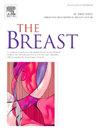丹麦BREAST-Q重构模块的心理计量学验证。
IF 5.7
2区 医学
Q1 OBSTETRICS & GYNECOLOGY
引用次数: 0
摘要
目的/背景:患者报告的结果测量仪器是了解乳房重建对患者生活质量影响的重要工具。在临床实践和研究中应用患者报告的结果测量工具之前,心理测量验证是必不可少的。breast - q是一份针对乳房手术结果的特定、有效的问卷,已从英语翻译成丹麦语。包括7个术前量表和15个术后量表167个项目。本研究旨在验证丹麦BREAST-Q重建模块。材料和方法:2019年1月至2020年6月纳入符合条件的女性。包含总分和超过40个完整回答的多条目量表符合心理测量验证条件,心理测量分析使用Rasch分析和经典测试理论检验信度和效度。测量包括局部反应依赖性测试、项目契合度测试、差异项目功能测试等。采用已知群假设评估临床效度。结果:术前和术后分别获得115例和201例完全缓解。我们在术前4个量表和术后9个量表中验证了120个项目。Rasch的分析揭示了8个尺度上局部反应依赖的证据。调整后的Chronbach’s α为0.81 ~ 0.95。项目拟合使用项目-休息分数的相关性进行评估,并在98%的项目中显示良好的拟合。在四个项目中发现了差异项目功能,但对模型的影响很小。认知组分析支持临床效度。讨论/结论:丹麦BREAST-Q重建模块具有良好的可接受性、可行性和有效性,有足够的信度。结果支持在丹麦人群中使用。本文章由计算机程序翻译,如有差异,请以英文原文为准。
Psychometric validation of the Danish BREAST-Q reconstruction module
Aim/background
Patient-reported outcome measurement instruments are important tools in understanding a breast reconstruction's impact on the patients' quality of life. A psychometric validation is essential before applying a patient-reported outcome measurement instrument in clinical practice and research. The BREAST-Q is a specific, validated questionnaire for breast surgery outcomes that has been translated from English to Danish. It consists of 167 items in 7 pre-operative scales and 15 post-operative scales. This validation study aims to validate the Danish BREAST-Q reconstruction module.
Material and methods
Eligible women were included from January 2019 to June 2020. Multiple-item scales with summated scores and more than 40 complete responses were eligible for psychometric validation, and psychometric analyses examined reliability and validity using Rasch Analyses and Classical Test Theory. Measurements included test for local response dependence, item fit, differential item functioning, and more. Clinical validity was assessed using known-groups hypotheses.
Results
We obtained 115 and 201 complete responses pre-and postoperatively, respectively. We validated 120 items in four preoperative and nine postoperative scales. The Rasch analyses disclosed evidence of local response dependence in eight scales. Chronbach's α ranged 0.81–0.95 after adjustment. Item fit was evaluated using item-restscore correlations and showed good fit in 98 % of items. Differential Item Functioning was found in four items but had very little effect on the model. Clinical validity was supported by the know-group analyses.
Discussion/conclusion
The Danish BREAST-Q reconstruction module has good acceptability, feasibility and validity, and adequate reliability. The results support the use in a Danish population.
求助全文
通过发布文献求助,成功后即可免费获取论文全文。
去求助
来源期刊

Breast
医学-妇产科学
CiteScore
8.70
自引率
2.60%
发文量
165
审稿时长
59 days
期刊介绍:
The Breast is an international, multidisciplinary journal for researchers and clinicians, which focuses on translational and clinical research for the advancement of breast cancer prevention, diagnosis and treatment of all stages.
 求助内容:
求助内容: 应助结果提醒方式:
应助结果提醒方式:


